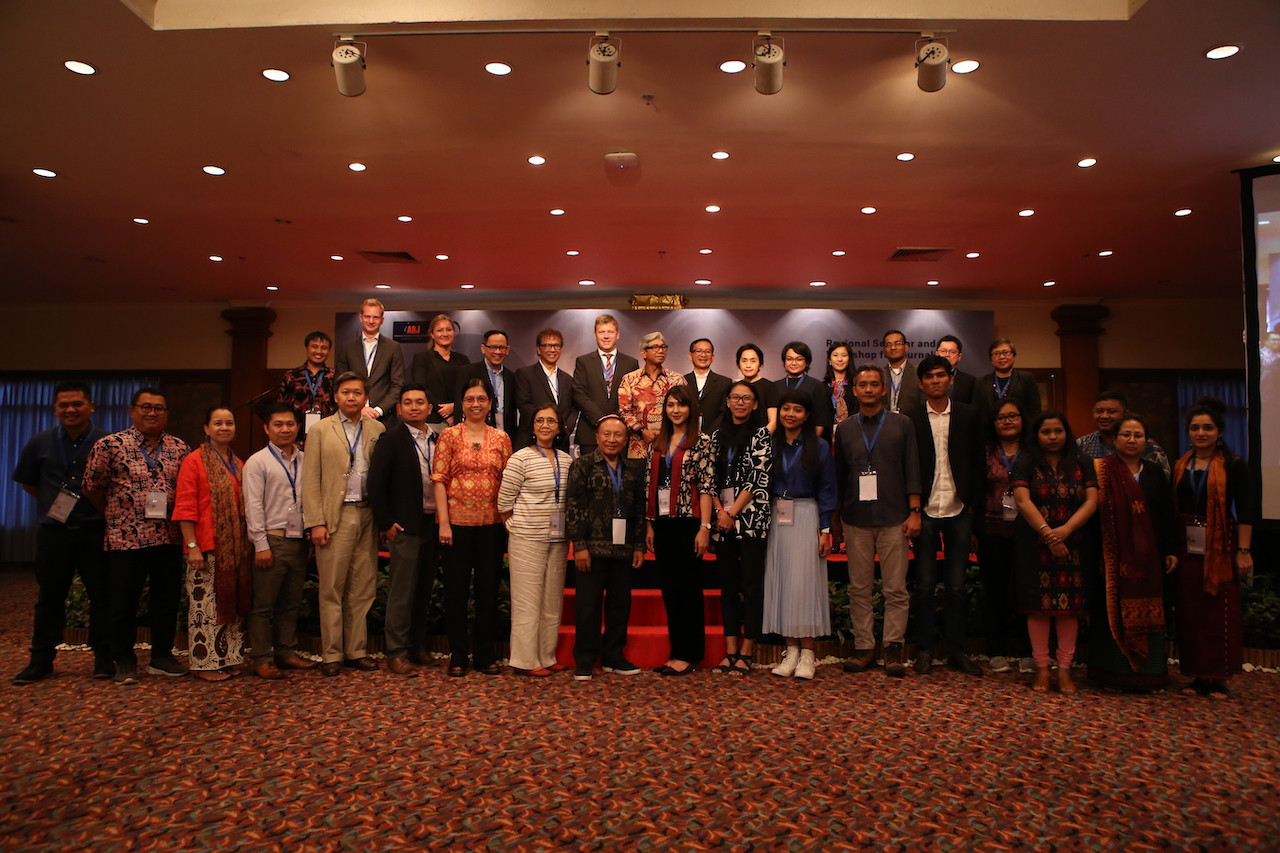Popular Reads
Top Results
Can't find what you're looking for?
View all search resultsPopular Reads
Top Results
Can't find what you're looking for?
View all search resultsWe're witnessing identity politics in extreme, violent forms: Deputy foreign minister
Change text size
Gift Premium Articles
to Anyone
S
outheast Asia is struggling to uphold democracy, facing challenges caused by identity politics, which limits freedom of expression and religious that could eventually lead to human rights violations.
"We are witnessing the politics of identity in extreme or even violent form," Deputy Foreign Minister AM Fachir said in his keynote speech at the Nexus between Religious Freedom or Belief and Freedom of Expression in South East Asia seminar in Nusa Dua, Bali, on Monday.
At the seminar, which was organized by the Journalist Association for Diversity (SEJUK) in cooperation with the International Association of Religion Journalists (IARJ) and the Institute for Peace and Democracy (IPD), Fachir said rampant hoaxes and fake news, which were spread on social media, have worsened the situation.
"We need to act against [the situation] [...] and action needs to be taken not just by the state, but also by civil society, including the media. The role of journalists is important to convey messages of peace, harmony and pluralism. So the key is to educate the public," he said at the opening of the three-day event, which was attended by dozens of journalists, scholars and human rights experts from Southeast Asia, Timor-Leste and India.
Before delivering his speech, Fachir invited everyone to observe a minute of silence to remember the victims of the terror attack on two mosques in Christchurch, New Zealand, which killed at least 50 people, including an Indonesian.
"Christchurch is a strong reminder that terrorism remains a real threat to us all irrespective of religious denomination or cultural background," he said.
Meanwhile, the IARJ’s executive director, Endy Bayuni, said the region was struggling to uphold democracy, facing challenges from society as well as the state.
Endy said the seminar gave journalists in the region a space to share their experiences and formulate a journalistic code of conduct when covering freedom of religion and minority rights issues
"Religion journalism is important and it is important that journalists work in an increasingly diverse society. We (the IARJ) and SEJUK believe that we are on the right track to promote this type of journalism," he said.
Royal Danish Special Representative for Freedom of Religion of Belief Ambassador Michael Suhr applauded the event, saying problems regarding the implementation of the freedom of religion, belief and expression was not only happening in the region, but globally as well.
"Freedom of expression is not an absolute right. Freedom of speech is not hate speech," Suhr said, adding that journalists should undergo more training, while the public also needed to be educated on the matter. (jun)










